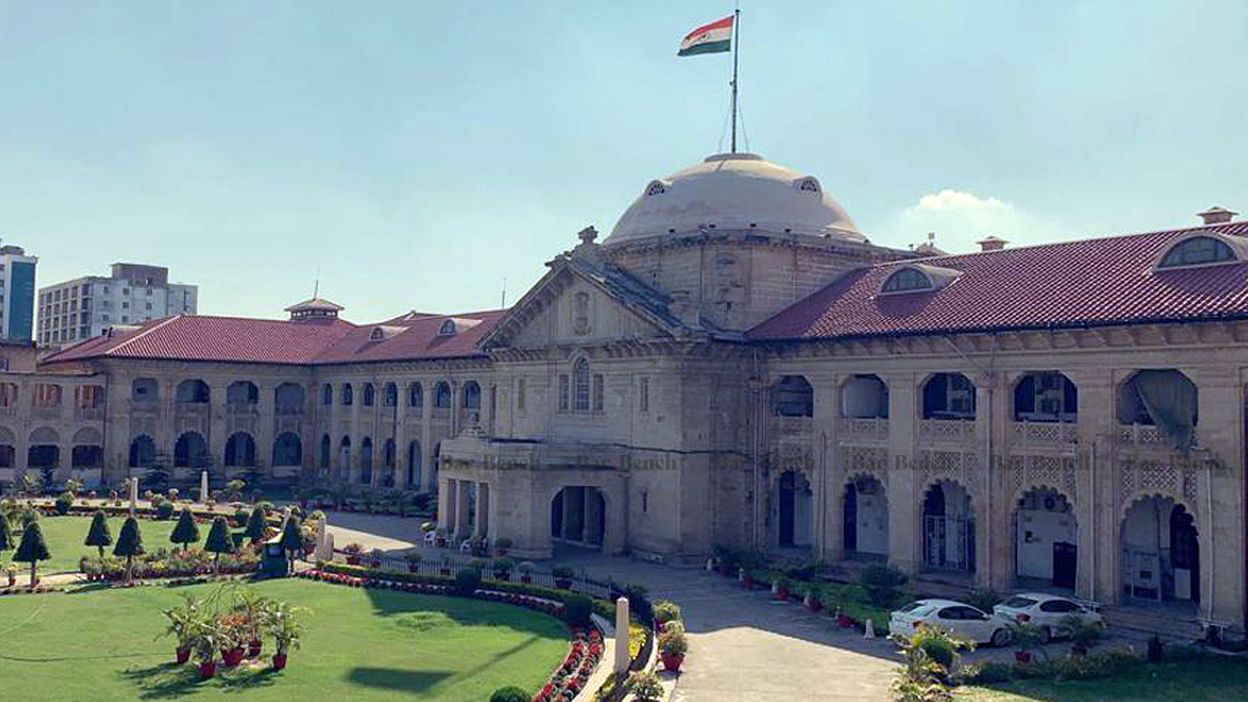Except In Circumstances That Suggest Fleeing Or Thwarting From Justice, Bail Not Jail Is The Basic Rule: Allahabad High Court Reiterates

The Allahabad High Court while granting bail to an accused charged under S. 498-A, 304-B I.P.C. and S.3/4 of Dowry Prohibition Act, 1961 has recently observed it is a settled position of law that bail is the rule & committal to jail an exception.
“Refusal of bail is a restriction on the personal liberty of the individual guaranteed under Article 21 of the Constitution. “The basic rule may perhaps be tersely put as bail, not jail, except where there are circumstances suggestive of fleeing from justice or thwarting the course of justice or creating other troubles.”, the Single Bench of Justice Sanjay Kumar Pachori noted.
The facts of the present case date back to 2015 when the applicant married the deceased. They have a new born daughter and she is living with the applicant in the applicant's house.
“The incident took place on 28.04.2017 at 04:00 A.M. and the dead body of the deceased was found inside the railway track where she went to 2 attend the natural call and the train just crushed her and the first information report has been lodged on 13.05.2017, i.e., after 16 days. The inquest report of the dead body of the deceased was prepared on the spot at 11:00 A.M. on 28.04.2017 on the basis of information received at 07:25 A.M. Corpse of deceased Reena was identified by the father-in-law as well as villagers. The father-in-law of the applicant was also present at the time of preparation of the inquest report Hence, he should have lodged F.I.R. of the alleged incident promptly on the said date, there appears no reason to lodge the F.I.R. after such a delay of 16 days and that there is no explanation of such delay. Further, it is relevant that the railway employee himself reported to the local police regarding the commission of the alleged incident.” – stated the application.
The Applicant’s Counsel submitted that the injuries received by the deceased clearly depicted the actual position of the incident that the injuries caused to the deceased must have been caused by train accident. He further contended that the applicant is languishing in jail since 09.10.2017, having no criminal history nor there any likelihood of fleeing from course of justice or tampering with evidence in case of release on bail.
On the other hand Respondent’s Counsel opposed the prayer for bail & refuted the arguments advanced on behalf of Applicant’s Counsel regarding information of the incident as alleged to have been given by the father-in-law of the deceased.
Taking into account the factual matrix of the case the Bench relied upon the Supreme Court ruling the judgment State of Rajasthan Vs. Bal Chandra (1977) 4 SCC 308, where the Court observed that refusal of bail is a restriction on the personal liberty of the individual guaranteed under Article 21 of the Constitution and opined that,
"The basic rule may perhaps be tersely put as bail, not jail, except where there are circumstances suggestive of fleeing from justice or thwarting the course of justice or creating other troubles in the shape of repeating offences or intimidating witnesses and the like, by the petitioner who seeks enlargement on bail from the court. We do not intend to be exhaustive but only illustrative."
The Bench further relied on the SC judgment in Gudikanti Narasimhulu And Ors vs Public Prosecutor, High Court Of Andhra Pradesh, AIR 1978 SC 429 and observed that the,
“larger mandate of Article 21 of the constitution 4 of India, the nature of accusations, the nature of evidence in support thereof, the severity of punishment which conviction will entail, the character of the accused-applicant, circumstances which are peculiar to the accused, reasonable possibility of securing the presence of the accused at the trial, reasonable apprehension of the witnesses being tampered with, the larger interest of the public/ State and other circumstances, but without expressing any opinion on the merits, I am of the view that it is a fit case for grant of bail.”
Therefore, while granting Bail, the Bench ordered the applicant to furnish a personal bond & two sureties each in the like amount to the Court’s satisfaction & also issued the following direction :-
“1. The applicant shall not tamper with the prosecution evidence by intimidating/ pressurizing the witnesses, during the investigation or trial.
2. The applicant shall cooperate in the trial sincerely without seeking any adjournment.
3. The applicant shall not indulge in any criminal activity or commission of any crime after being released on bail.
4. In case the applicant has been enlarged on short term bail as per the order of committee constituted under the orders of Hon'ble Supreme Court his/her bail shall be effective after the period of short-term bail comes to an end.
5. The applicant shall be enlarged on bail on execution of personal bond without sureties till normal functioning of the courts is restored. The accused will furnish sureties to the satisfaction of the court below within a month after normal functioning of the courts are restored.”
Further, the Cench stated that breach of any of the above conditions would furnish a ground for cancellation of bail.
Case Title: Vijay Gupta v. State of U.P.
Law Point/Statute Involved: Section 439 of the Code of Criminal Procedure, Section 498-A, 304-B of the Indian Penal Code,1860 & Section 3 & 4 of the Dowry Prohibition Act,1961.
